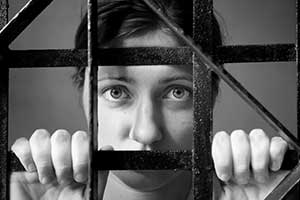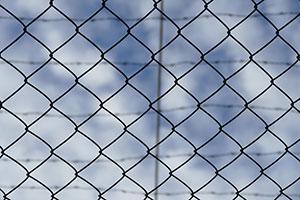The Museums Association Esmee Fairburn Collection Fund has awarded £120,000 to the National Justice Museum to introduce its unique 200-year-old HM Prison Service collection to a wider audience.
The funding supports a three-year project ‘Ingenuity, Creativity, Hope’ involving people in… more
Children are often devastated when their mum is sent to prison but their interests are rarely considered by a justice system which is blind to their needs, a new report by the Prison Reform Trust (PRT) reveals.
For most children, their mother is their primary carer. Every year an estimated 17,000 children experience their mum being sent to prison. Last year, 83% of women sentenced to prison had committed a non-violent crime and 62% were serving a sentence of six months or less.
The report shows that a mother’s imprisonment not only damages the child’s relationship with her, but can affect every area of their lives, including their housing, education, health, and well-being. Key findings within the report include:
- Only one in 20 children whose mother is sent to prison each year is able to stay in the family home. They may be placed with a number of different carers during their mother's sentence.
- Many children face financial hardship and encounter significant disruption to their lives such as moving school and being separated from brothers and sisters.
- Children experience a wide range of emotions as a result of their mother going to prison, including grief, trauma, and shame. The knock-on effects of stigmatisation may also lead to social isolation and discrimination.
Aliyah, 13, said:
“It was a horrible time. I was sad a lot of the time and didn’t want to explain to my friends what had happened.”
A mother interviewed for the report said:
“My family ceased contact with my children when I came to prison; they no longer see any extended family. My son lost his love for life and has attempted suicide twice as a result of me being in here. My daughter had to leave school to care for her brother. They had issues getting along as siblings, and I was not there to help them work it out. My son stopped taking any interest in school and refused to eat. My children were left to starve due to lack of financial help because the benefits stopped."
The report, written by PRT associate Sarah Beresford, is based on conversations with children and young people who experienced having a mother in prison; mothers in prison and on community orders; grandparents who have had to pick up the pieces; and statutory and voluntary agencies supporting women and children. It also draws on the available academic research.
Despite the significant impact the imprisonment of mothers can have on children, the report found that the views and best interests of children are rarely considered by the criminal justice system and that they face many barriers to getting support. No government agency has responsibility for ensuring the welfare of these children is safeguarded and their rights are protected, judgemental attitudes limit the support available, and specialist services have been cut.
Among the report’s recommendations—many of which would also be relevant to situations where a father is imprisoned—is a call for child impact assessments to be conducted as soon as a parent enters the criminal justice system, to ensure that any children affected are identified and their needs addressed.
It also recommends the introduction of a presumption against short prison sentences of less than 12 months, and better investment in women’s community support, including women’s centres.
Coming hard on the heels of the government’s new Female Offender Strategy, launched last week, the report reinforces the case for change. The strategy emphasises the damage done by short periods of imprisonment and commits to a review of family support for women offenders and the roll out of training for criminal justice practitioners on the impact of imprisonment on children. However, it falls short of promising a comprehensive childcare assessment for anyone facing a criminal conviction called for in our report.
Commenting, Jenny Earle, Director of PRT’s Transforming Lives Programme to Reduce Women’s Imprisonment, said:
"This report lays bare the devastating impact on children of mothers' imprisonment. Children are completely innocent and yet are being cruelly punished by a criminal justice system which is blind to their needs. Children should be at the centre of decision-making not an after-thought. While we welcome the commitment in the government’s women offender's strategy to better provision for primary carers, it falls short of the comprehensive approach needed to prevent children from falling through the cracks of our justice system."



